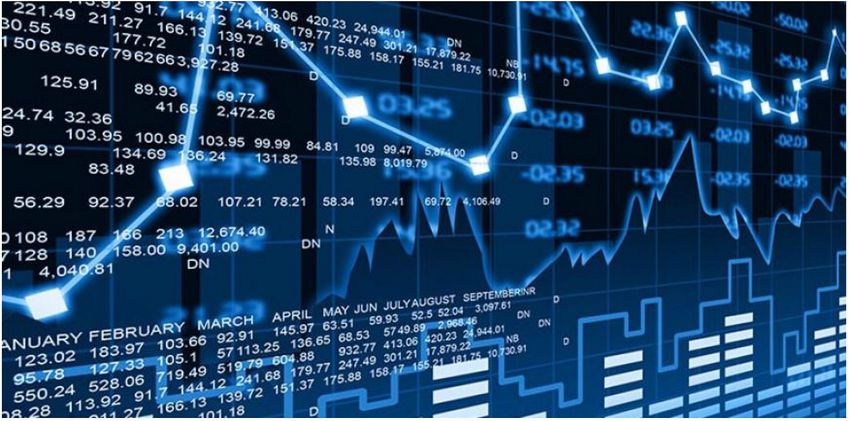Artificial Intelligence (AI) is transforming the financial industry, particularly in stock price prediction and risk management. AI-driven models analyze vast amounts of data at incredible speeds, helping traders, investors, and institutions make informed decisions. From machine learning algorithms to neural networks, AI is revolutionizing how financial markets operate.
How AI Predicts Stock Prices 📊
Stock price prediction is one of the most sought-after applications of AI in finance. Traditional methods relied on fundamental and technical analysis, but AI enhances these methods through:
1. Machine Learning & Deep Learning Algorithms 🧠
AI models use machine learning (ML) and deep learning to detect patterns in stock market data. These models are trained on historical stock prices, news sentiment, trading volumes, and macroeconomic indicators.
- Supervised Learning: AI learns from labeled historical data to predict future prices.
- Unsupervised Learning: AI finds hidden patterns in the data without predefined labels.
- Reinforcement Learning: AI adapts strategies over time, learning from market conditions.
2. Sentiment Analysis & News Impact 📰📢
AI scans financial news, social media, and earnings reports to gauge market sentiment. Natural Language Processing (NLP) helps AI understand whether the sentiment is positive or negative, influencing stock movements.
Example: If an AI model detects positive news about a company (e.g., strong earnings, new product launch), it may predict a rise in stock prices.
3. High-Frequency Trading (HFT) ⚡📉
HFT firms use AI to execute trades in microseconds, leveraging real-time data to identify profitable opportunities. These AI-driven systems can:
- Analyze order book data and predict price movements.
- Execute thousands of trades in a fraction of a second.
- Reduce human error in trading decisions.
4. Technical Analysis & Pattern Recognition 🔍📈
AI identifies classic chart patterns like head-and-shoulders, cup-and-handle, and double-top formations. Machine learning enhances technical indicators such as:
- Moving Averages (MA)
- Relative Strength Index (RSI)
- Bollinger Bands
- Fibonacci Retracements
AI in Risk Management 🛡️📉
Risk management is crucial in finance, and AI helps institutions minimize financial losses through advanced predictive analytics.
1. Fraud Detection & Prevention 🚨🛑
AI detects suspicious transactions by analyzing historical data and user behavior. For example:
- Banks use AI to identify unusual account activity.
- Credit card companies detect fraudulent purchases in real-time.
- AI flags money laundering activities through pattern recognition.
2. Portfolio Risk Assessment 📌📊
AI helps investors assess risks associated with their portfolios by:
- Identifying correlations between assets.
- Predicting potential downturns in specific industries.
- Optimizing asset allocation for better diversification.
3. Stress Testing & Scenario Analysis 📈⚠️
AI simulates worst-case scenarios (e.g., financial crises, market crashes) to prepare investors and institutions for unexpected risks. These stress tests help banks ensure financial stability.
4. Credit Risk Analysis 💳📊
AI assesses the creditworthiness of individuals and businesses by analyzing vast datasets, including:
- Credit history
- Income levels
- Market trends
This helps financial institutions make better lending decisions and reduce bad debt.
Benefits of AI in Finance 🚀💰
✅ Increased Accuracy – AI models process vast datasets with high precision.
✅ Faster Decision-Making – AI executes trades and risk assessments in real-time.
✅ Reduced Human Error – Eliminates emotional biases in trading and investment decisions.
✅ Better Fraud Prevention – AI enhances security by detecting fraudulent activities.
✅ Optimized Investment Strategies – AI suggests data-driven investment opportunities.
Challenges of AI in Financial Markets ⚠️🤯
❌ Data Bias & Inaccuracy – Poor-quality data can lead to misleading predictions.
❌ Regulatory Compliance – Governments impose strict regulations on AI-driven trading.
❌ Market Volatility – AI cannot always predict unexpected market events like black swan events.
❌ High Initial Costs – AI implementation requires significant investment in infrastructure.
The Future of AI in Finance 🚀🔮
AI is expected to become even more sophisticated in financial markets, with advancements such as:
- Quantum AI: Using quantum computing for ultra-fast data processing.
- Explainable AI (XAI): Improving transparency in AI-driven financial decisions.
- Autonomous Trading Bots: Fully AI-driven trading strategies.
- Personalized Investment Advisors: AI-powered robo-advisors providing customized investment plans.
As AI technology continues to evolve, its role in stock prediction and risk management will only grow stronger, making financial markets more efficient and data-driven.
Conclusion 🏆💡
AI is revolutionizing finance by enhancing stock price prediction and risk management. While it offers numerous benefits like increased accuracy and fraud detection, challenges such as data bias and regulatory issues remain. However, with continuous advancements, AI is set to play a more significant role in shaping the future of financial markets.


